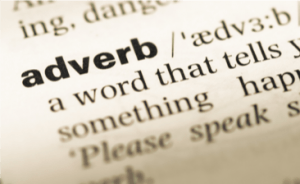by Rehann Rheel

“So are you ready for the new season of ‘Game of Thrones?’”
“So where do I fit in?”
“So I was searching for an Airbnb…”
That sneaky so seems to constantly creep into my sentences lately. So much so that all those so’s are making me feel so-so about my writing, to be perfectly honest. Is so the new um? Is it nothing but an unnecessary crutch and filler?
There are definitely people who’d agree with that. In fact, NPR listeners considered it the second-most misused word of 2014. But it turns out that this so I apparently love starting my sentences with is not a misuse at all. It’s a linguistic phenomenon called Sentence-Initial So. But before we get into whatever the heck that means, let’s review a few of the more typical uses of so. The ones that won’t make NPR listeners take up arms.
So is a useful little word. To see its uses in detail, you can go to the Merriam-Webster page. But here’s the usage rundown:
- Adverb: “I ate that sushi so quickly.”
- Conjunction: “I know three languages already, so I don’t think learning anotherwill be difficult.”
- Pronoun: “If you need to make a call, do so before we lose service.”
- Adjective: “She arranged her pictures just so.”
Sentence-Initial So, though, is different. It’s used like the speaker or author is continuing a story or explaining something, even if neither of these things is actually happening. That begs the question, then: what exactly is happening here? Well, there are a few different theories (in no particular order, for the record):
- So to indicate that what’s being said has been pending. That’s why this brand of so is heard so often (like, really really often) in interviews.
- So to point out that the following words are relevant to the listener
- So to switch to a brand new topic, while acknowledging the topic that came before
- So to avoid awkward silences (aka the bane of my existence)
To put it super simply, Sentence-Initial So is a polite transition word.
So, how new is Sentence-Initial So anyways? Turns out, it’s not very new at all. In fact, it’s kind of old. Granted, Sentence-Initial So usage has increased over the past decade or two, but instances of this particular so can be found in recordings from the 20s and 30s, and even in Chaucer’s work way back in the 14th Century.
Also, the Sentence-Initial concept has been a part of English even before so was the reigning queen. Sentence-Initial Well held the throne most recently, Sentence-Initial Now ruled before well did, and if you go back to Old English (Beowulf for the win!) good ol’ Sentence-Initial What was where it was at.
I wonder which word will usurp so?
I’m eternally fascinated by how language evolves, and how my own language changes without me even realizing it. Have any of you noticed Sentence-Initial So? Or another seemingly odd quirk of English? Let me know in the comments.
If you want to hear more about Sentence-Initial So, check out the resources below.
Podcast Resources:
A Way with Words | College Slang Party
A Way with Words | Coast is Clear
A Way with Words | Pig Latin
Lexicon Valley | So…Let’s Talk about So
Lexicon Valley | A Needle Pulling Thread
Written Resources:
University of Pennsylvania | Language Log
Dictionary.com | Everything after Z
